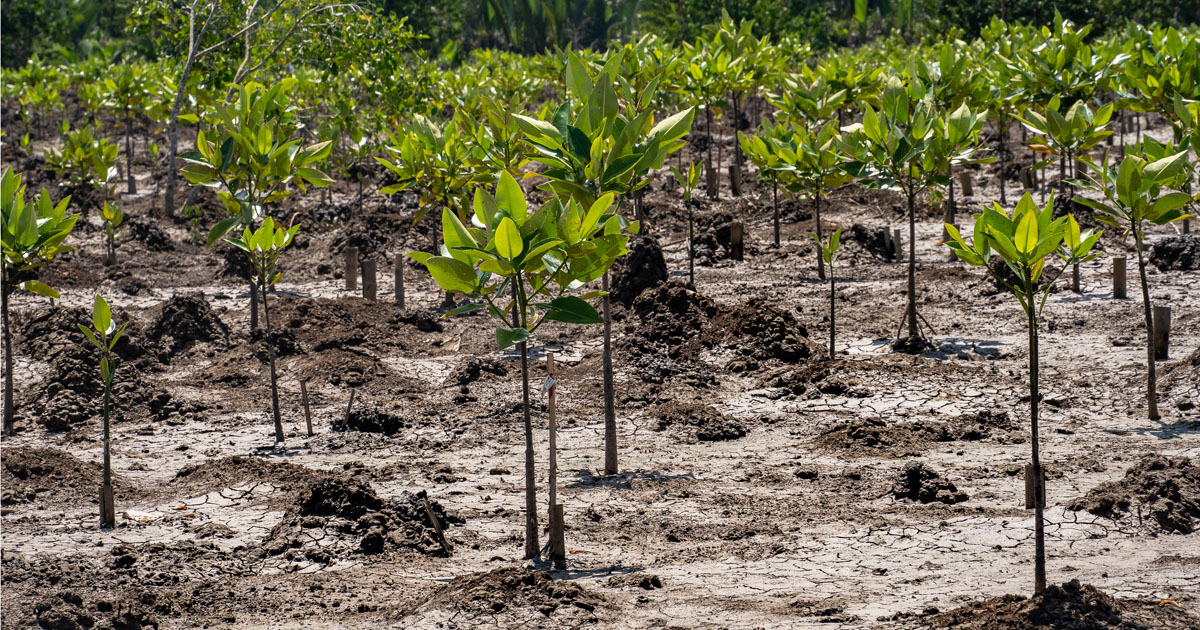
Dakar, Senegal (8 October 2024) — A new initiative aims to promote the sustainable management of Africa’s biodiversity and ecosystems through data-driven solutions and approaches.
- Africa’s environmental resources, forests, biodiversity and ecosystems are central to the continent’s economic growth and the well-being of its population.
- These vital resources are increasingly threatened from deforestation, land degradation, climate change, human-wildlife conflict and environmental pollution.
- The Regional Centres of Excellence for Biodiversity and Forests initiative aims to promote the sustainable management of Africa’s biodiversity and ecosystems through data-driven solutions and approaches.
Government representatives, donors, multilateral organizations, regional bodies, research organisations and other key environmental stakeholders are gathered in Dakar, Senegal from 8-11 October for the First Annual Meeting of the Regional Centres of Excellence for Biodiversity and Forests in Africa.
The meeting, which brings together over 50 participants, aims to chart a transformative roadmap for the sustainable management of the continent’s vast environmental resources and rich biodiversity (including forests, water bodies and wildlife) through data-driven, science-backed solutions and approaches.
The Regional Centres of Excellence initiative is funded by the European Union and implemented by the Center for International Forestry Research and World Agroforestry (CIFOR-ICRAF) in collaboration with the Ecological Monitoring Centre (CSE) in West Africa, the Central Africa Forest Observatory (OFAC) in Central Africa and the Regional Centre for Mapping of Resources for Development (RCMRD) in Eastern and Southern Africa, among other partners.
The primary objective of the initiative is to ensure that Africa’s forests, ecosystems and biodiversity are sustainably managed. This will enable them to continue providing essential services—such as food, water, fuel and shelter—that contribute to the well-being of local populations, while supporting rapid economic growth and development across the continent.

“We are honoured to host the first Annual Meeting of the Regional Centres of Excellence for Biodiversity and Forests in Africa,” said H.E. Prof. Daouda Ngom, the Minister of Environment and Ecological Transition of Senegal. “This is a great initiative that will enable African countries to access quality data and share best practices for the effective management of the continent’s environmental resources, forests, biodiversity and ecosystems that are vital for our well-being and economic development.”
The Regional Centres of Excellence programme supports three units in Africa that are based in West Africa, Central Africa, as well as Eastern and Southern Africa. The centres are hosted by CSE, OFAC and RCMRD respectively. They strive to:
- Serve as a reference point for credible data on the status of Africa’s vast environmental resources, ecosystems and rich biodiversity that encompass forests, water bodies, as well as numerous plants and animal species.
- Influence policy decisions at regional and global levels to promote the sustainable management of Africa’s natural resources, ecosystems, and biodiversity.
- Enhance coordination and collaboration among stakeholders, including governments, research institutions, non-governmental organisations and local communities, for the sustainable management of Africa’s natural resources, ecosystems and biodiversity.

“This Regional Centres of Excellence initiative seeks to strengthen the Africa-EU partnership on science, technology and innovation, with a special focus on the science-policy interface. We are keen on enhancing the technical capacity of the centres to deliver data, knowledge and expertise across thematic areas that include biodiversity, forests, food security, agroecology, water, oceans, as well as climate and disaster resilience,” said Jean-Marc Pisani, Ambassador and Head of the European Union Delegation to Senegal.
The activities being implemented by the Regional Centres of Excellence are aligned to global, African and European policies and strategies. These activities play a pivotal role in contributing to key international agreements such as the UN Convention on Biodiversity, the Sustainable Development Goals and the UN Framework Convention on Climate Change.
In addition, they also advance the African Union’s Agenda 2063 and are aligned with the European Green Deal, which is Europe’s strategy for achieving climate neutrality by 2050 through the reduction of greenhouse gas emissions that are the major drivers of climate change.

“Africa’s rich biodiversity and ecosystems face numerous threats such as deforestation, land degradation, climate change, human-wildlife conflict and environmental pollution. These Regional Centres of Excellence are therefore crucial for the continent, as they will enable us to develop data-driven solutions to tackle these challenges,” noted Peter Minang, CIFOR-ICRAF Director for Africa.
“The Ecological Monitoring Centre has the privilege of hosting the Centre of Excellence for Biodiversity and Ecosystems in West Africa. Through this major initiative, we look forward to collaborating and working closely with other centres of excellence in Africa to actively contribute to the monitoring and implementation of global biodiversity commitments, particularly through the implementation of National Biodiversity Strategies and Action Plans,” said Dr.Cheikh Mbow, Director General of the CSE (Senegal).
###
NOTE TO EDITORS:
For more information or to arrange press interviews, contact:
Thioro Codou NIANG
Ecological Monitoring Centre (CSE)
thioro.niang@cse.sn
Gilberte Koffi
CIFOR-ICRAF
g.koffi@cifor-icraf.org


















